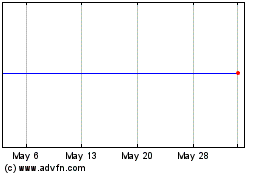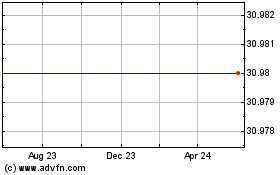2nd UPDATE: FDA Approves Amylin's Bydureon Diabetes Drug After Delays
January 27 2012 - 5:56PM
Dow Jones News
The U.S. Food and Drug Administration approved Amylin
Pharmaceuticals Inc.'s (AMLN) diabetes drug Bydureon after a
prolonged regulatory process in which the agency required extra
testing to alleviate safety concerns.
Bydureon is the first once-weekly treatment for type 2 diabetes,
the most common form of diabetes, Amylin and its partner Alkermes
Inc. (ALKS), which developed the extended-release technology for
Bydureon, said in a press release Friday. The companies said the
drug will be available in U.S. pharmacies in February.
The FDA-approved prescribing label for Bydureon has a prominent
warning stating that the drug caused certain kinds of thyroid
tumors in rats at clinically relevant exposures in testing,
according to the FDA website.
The warning notes that it's unknown whether the drug causes such
tumors in humans. But it says Bydureon shouldn't be used in
patients with a personal or family history of medullary thyroid
carcinoma.
Bydureon is an injectable, extended-release version of Amylin's
older diabetes drug, Byetta, which is injected twice daily. Byetta
and Bydureon share an active ingredient, exenatide. Bydureon was
approved for sale by European regulators in June.
The drug is designed to work by helping the body to make more
insulin, which can reduce high blood-sugar levels.
"We are clear to begin the next steps towards bringing the first
weekly dose diabetes therapy to the market in the United States,"
Amylin Chief Executive Daniel Bradbury said on a conference call
with analysts.
Amylin shares jumped 15% to $14 in after-hours trading. Alkermes
shares rose 4.7% to $20.
Some analysts have estimated Bydureon sales could reach nearly
$2 billion annually by the end of this decade. But it will face a
crowded market, as drug companies have responded to the rising
incidence of diabetes worldwide by developing new treatments.
One competitor is Novo Nordisk A/S's (NVO) Victoza, a once-daily
injectable drug approved two years ago. Although a once-weekly drug
like Bydureon might seem more convenient for patients than
once-daily, a study released last year showed that Victoza reduced
blood-sugar levels to a greater degree than Bydureon. Victoza's
label also has a warning about the potential risk of thyroid
tumors.
Amylin will try to mitigate Victoza's advantage with pricing.
The company said Bydureon will cost about $323 for a one-month
supply, while a high-dose pack of Victoza costs about $421 per
month, according to Deutsche Bank.
"Our pricing strategy is designed to rapidly make Bydureon
available to as many patients as possible," Bradbury said on a
conference call with analysts.
Spokesmen for Novo Nordisk couldn't immediately be reached.
Bydureon's road to FDA approval was a bumpy one, along which
Amylin severed its longstanding diabetes-drug partnership with Eli
Lilly & Co. (LLY). Amylin first began working on Bydureon in
1999. The original plan was for Lilly and Amylin to co-promote
Bydureon in the U.S., with Lilly handling markets outside the U.S.
The companies had a similar arrangement for Byetta, which was
approved by the FDA in 2005.
Lilly and Amylin submitted Bydureon for FDA approval in May
2009, based on clinical-trial data showing it improved measures of
blood sugar versus Byetta. Addressing heightened FDA scrutiny of
heart-related effects of diabetes drugs, the companies said at the
time that an analysis showed no increased risk of cardiovascular
events to be associated with exenatide.
The FDA initially declined to approve it, asking in March 2010
for more information about the drug's prescribing label and the
companies' risk-management plan to ensure the drug's benefits
outweigh its risks. Amylin and Lilly were optimistic they would get
FDA approval later in 2010 after providing the requested
information.
However, in October 2010, the FDA dropped a bombshell by
rejecting Bydureon again. This time the agency asked for a new
study to test the effect of a high dose of the drug on heart
rhythm.
The companies ran the required test and in June said results
showed Bydureon wasn't associated with a clinically relevant
prolonged measure of heart rhythm. The results increased optimism
that the drug would finally get an FDA green light.
Amid the delay, the partnership between Lilly and Amylin
deteriorated, and ultimately was terminated. In January 2010, Lilly
formed a new diabetes-drug partnership with Boehringer Ingelhiem
GmbH, prompting Amylin to file a lawsuit alleging breach of its own
contract with Lilly.
In November, Lilly and Amylin settled the dispute by agreeing to
return global development and commercialization rights for Byetta
and Bydureon to Amylin. Lilly will receive royalties on sales of
Byetta and Bydureon up to a cap.
The FDA approval for Bydureon requires Amylin to conduct
additional testing to further assess the drug's impact on thyroid
cancer and cardiovascular disease.
Shares of Amylin and Alkermes were halted Friday in advance of
the agency decision.
-By Peter Loftus, Dow Jones Newswires; 215-982-5581;
peter.loftus@dowjones.com
--Jennifer Corbett Dooren contributed to this article.
Amylin Pharmaceuticals, Inc. (MM) (NASDAQ:AMLN)
Historical Stock Chart
From May 2024 to Jun 2024

Amylin Pharmaceuticals, Inc. (MM) (NASDAQ:AMLN)
Historical Stock Chart
From Jun 2023 to Jun 2024
